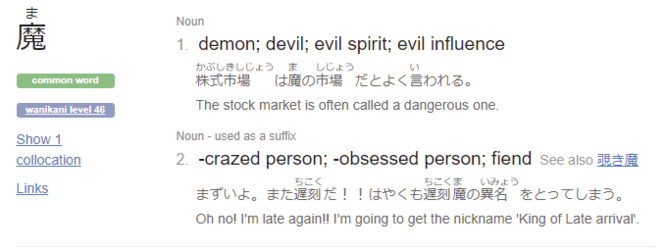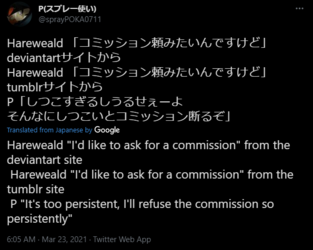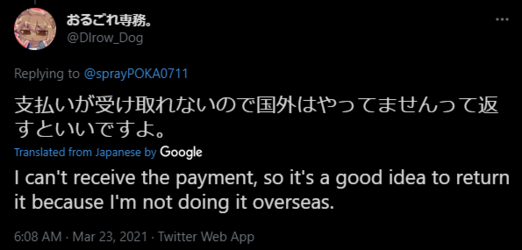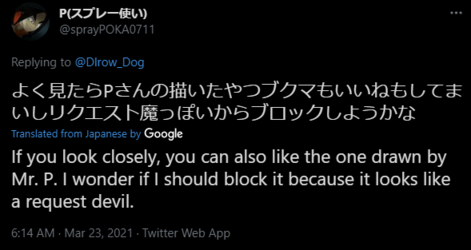Lou, with the google translate level of Japanese language comprehension.
View attachment 2021426
I doubt he understands Japanese, nor do I. However, I reckon 'request devil' doesn't have the same literal meaning in Japanese as it does as translated by Google.
I'd love to see what the tweet I have above accurately translates to in English.

My japanese is intermediate at best, but I can get a kind of idea of what this person was talking about. There are two ways you could translate 'Request Demon' in this:
One being in the literal sense, 魔っぽい would mean like a demon, but ”っぽい” as a suffix means that something is acting like something else, but it is almost unnatural and you don't like it. For example if you saw a person eating very messily, you could say 犬っぽい meaning like a dog, but with the nuance that the person should not be acting like that. If you wanted to just say they are acting like a dog, you would say 犬みたい instead (literally "like a dog").
But on the other hand, as you can see from the kanji there, there is a second meaning. I think this is more likely. リクエスト is just "request" and 魔 as a suffix would then translate to more "request obsessed person". Add the っぽい for extra nuance and it sounds like the person was acting unnaturally obsessed.
Wanting more context to this though, I went to check the japanese artist's twitter to try and find the original tweet.



Trying to translate the tweets a little more accurately with my dictionaries etc. The guy asked about a commission on both their deviantart and tumblr, the artist felt like the guy was being too pushy and refused the commission. The last tweet is basically saying "if he looked hard enough, he could find someone else to commission who draws in the same style". The other person in the conversation is saying the artist may not be able to receive payment from overseas anyway, so its better to refuse the commission anyway. Japanese doesn't use a lot of pronouns, they remove it from speech if it is obvious who the subject of conversation is, but google doesn't understand things without a clear subject very well so will default to "I".
The problem here is many japanese people who don't speak amazing english do get intimidated pretty easily by westerners. It might have been a bit of a snap judgement to block the guy, but at the same time the guy should have waited for a reply instead of asking everywhere. Manners and politeness are really important to japanese culture and if they see you as rude and there is a language barrier it's easy to see how you could end up giving off the wrong impression.










